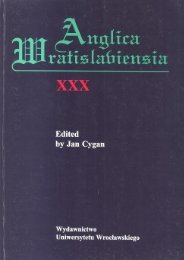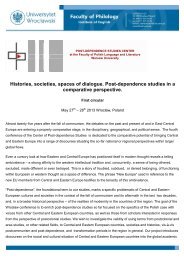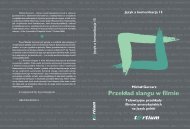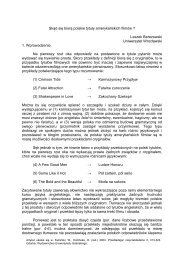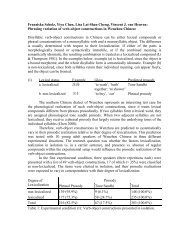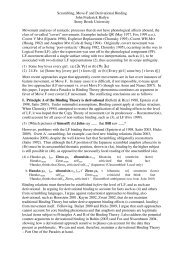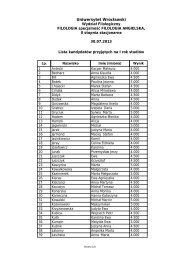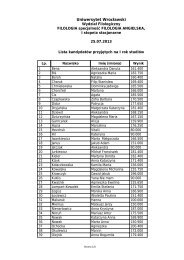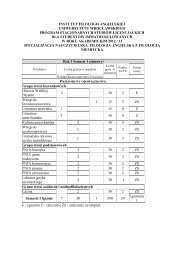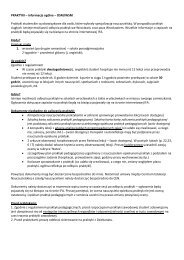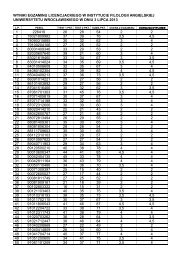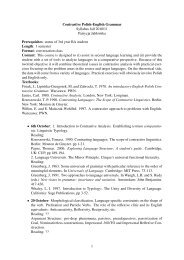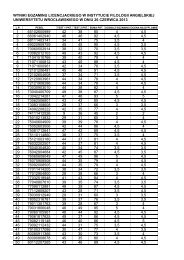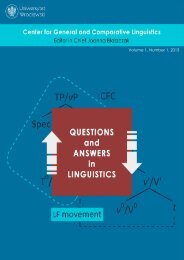Academic Journal Modern Philology
Academic Journal Modern Philology
Academic Journal Modern Philology
Create successful ePaper yourself
Turn your PDF publications into a flip-book with our unique Google optimized e-Paper software.
<strong>Academic</strong><br />
<strong>Journal</strong><br />
of<br />
<strong>Modern</strong><br />
<strong>Philology</strong><br />
Konrad Klimkowski<br />
Maria Curie-Skłodowska University in Lublin<br />
ISSN 2299-7164<br />
Vol. I (2012)<br />
s. 33-44<br />
Non-formal Elements in <strong>Academic</strong> Translator Education<br />
Abstract<br />
The author of the following article propounds that when planning the general translation teaching program for<br />
students of translation studies, the methodologists should not narrow it only to the formal curriculum used during<br />
regular classes. The author does not refer here to the possibility of broadening the formal program to include<br />
practices, internships or meetings with various experts in the field, however, but rather to the redefinition of the<br />
notion of curriculum, so that it always includes both formal and informal aspects of the translation studies. The<br />
co-existence of the two modules indicates their interdependence in the process of teaching. The primary goal of<br />
the informal module is to complement the formal teaching curriculum with various supplementary subject matters,<br />
teaching and learning methods as well as interactions that are difficult to implement within the basic frames of the<br />
educational program. What is more, the informal initiatives are supposed to give students of translation a chance<br />
to take part in various self development programs and events even after they graduate from university, which, as a<br />
consequence, provides the students with the opportunity to acquaint themselves with the notion of lifelong learning<br />
and, simultaneously, makes them realise how necessary and vital the process is.<br />
Key words: dictionary, translation, translator, curriculum, lifelong learning<br />
Until the year 2000, the debate on translator education was predominated by the attempts to define<br />
the concepts of translation competence and to develop models of its acquisition and evaluation (cf.<br />
Schaeffner and Adab 2000). Donald Kiraly, in 2000, introduced yet another perspective on translator<br />
education: the student-teacher interaction. Kiraly’s views are difficult to summarize in brief. Nevertheless,<br />
the author pinpoints four main observations made by Kiraly (2000), since they constitute the basis for<br />
the arguments and proposals made in the main part of this paper.



